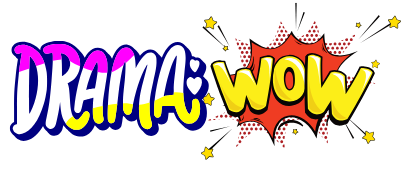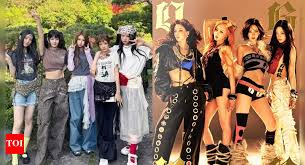In the glitzy, cutthroat world of K-pop, where image and creativity are not just valued but revered, one accusation can bring down the brightest stars. Aespa—the genre’s foremost experimental practitioners of digital-to-realm storytelling—now find themselves at the center of controversy.

What was meant to be a moment of jubilation has unravelled into a sprawling fiasco with allegations of plagiarism attached to the girl group’s new music video. A maelstrom has formed in the global music ecosystem, but at first, it started simply like the calm before a storm. Just hours after Aespa released their music video, social media spilled over with comparisons to side-by-side images between stills from the video and the visuals of a relatively unnamed European artist. The accusations came swiftly and heavily—shot compositions, costume designs, and even motifs typical to the cyber-dystopian style of the digital artist, Tilda Novak from Germany. Fans of Novak’s work quickly took to social media to raise hell. Some of Novak’s work had been posted publicly as early as 2021. In a whirlwind of artistic credibility and aesthetics, it appeared these aesthetics had manifested in Aespa’s new futuristic universe without proper credit and without permission.
The public backlash was immediate and unrelenting. Fans and critics fought digitally over emotive angles, letting their voices flow freely across trending hashtags like #AespaPlagiarism and #JusticeForArtists.Tilda Novak herself broke the silence with a restrained but cutting statement: “I’m flattered that my work inspires others, but I was never contacted or credited. This feels like theft, not tribute.” That one sentence reverberated like a thunderclap, indicting not just Aespa but the entire machinery behind them.
Suddenly, the fanbase—known as MYs—was divided. While diehard loyalists defended the idols, arguing that they were mere performers following orders from stylists and creative directors, others weren’t as forgiving. The argument that K-pop borrows heavily from shared visual culture wasn’t enough this time. The similarities were too specific. The silence from SM Entertainment, Aespa’s powerful label, felt deafening—and damning.
Just when the outrage threatened to consume the entire comeback campaign, an unexpected twist pushed the drama to new heights. An anonymous whistleblower—allegedly a former employee of a rival K-pop label—surfaced online, claiming that SM had a history of “borrowing” from lesser-known artists. While the claims were unverified, they lit a match under already combustible speculation. Was this truly a one-off mistake, or was it the symptom of a deeper, more troubling pattern within K-pop’s gleaming empire?
Under mounting pressure, SM Entertainment finally broke its silence—but the response was anything but reassuring. Their brief statement spoke of taking “intellectual property rights seriously” and announced an “internal review,” yet failed to directly acknowledge Novak or the severity of the situation. It was the kind of corporate diplomacy that might have worked in a quieter era, but not in 2025—not in an age where every fan is also a watchdog, where silence can be weaponized and neutrality interpreted as guilt.
And all the while, the members of Aespa—Karina, Winter, Giselle, and Ningning—remained heartbreakingly silent. No apologies, no personal statements, no mention of the artist whose world they were accused of mirroring. It was a silence that screamed louder than any denial. For a group that had built its reputation on revolutionary storytelling and digital mythology, their quietness in the face of this very real-world scandal was both shocking and sad. Fans expected fire and transparency. Instead, they got a polished vacuum.
Yet amid the wreckage of public opinion, there was an unexpected victor: Tilda Novak. Her name surged to the top of search engines, her social media following skyrocketed, and her digital portfolio gained more attention in 72 hours than it had in the past three years. The irony was cruel—Aespa’s alleged plagiarism had elevated the very artist they may have wronged.
Industry experts now wonder: What does this mean for Aespa’s trajectory? Will the controversy tarnish their international appeal, or will they weather the storm and emerge stronger? Will SM Entertainment take accountability and implement ethical reforms in their creative process, or will this too be buried under the next flashy comeback?
The incident has reignited a larger debate about the blurred line between inspiration and imitation, and the role of massive entertainment conglomerates in safeguarding creative integrity. For now, the digital avatars that once set Aespa apart feel like ironic metaphors: beautiful, controlled, and eerily detached from reality.
One thing is certain—the sparkle of their comeback has been dimmed by the heavy shadow of doubt. Whether this controversy marks a temporary stumble or the beginning of a deeper reckoning remains to be seen. But the K-pop world, and the eyes of millions, are watching. Closely.
FOR MORE UPDATES, VISIT DRAMAWOW.COM
¿Cuál es tu reacción?

Feliz
0

Alegre
0

Da igual
0

Enojo
0

Tristeza
0

